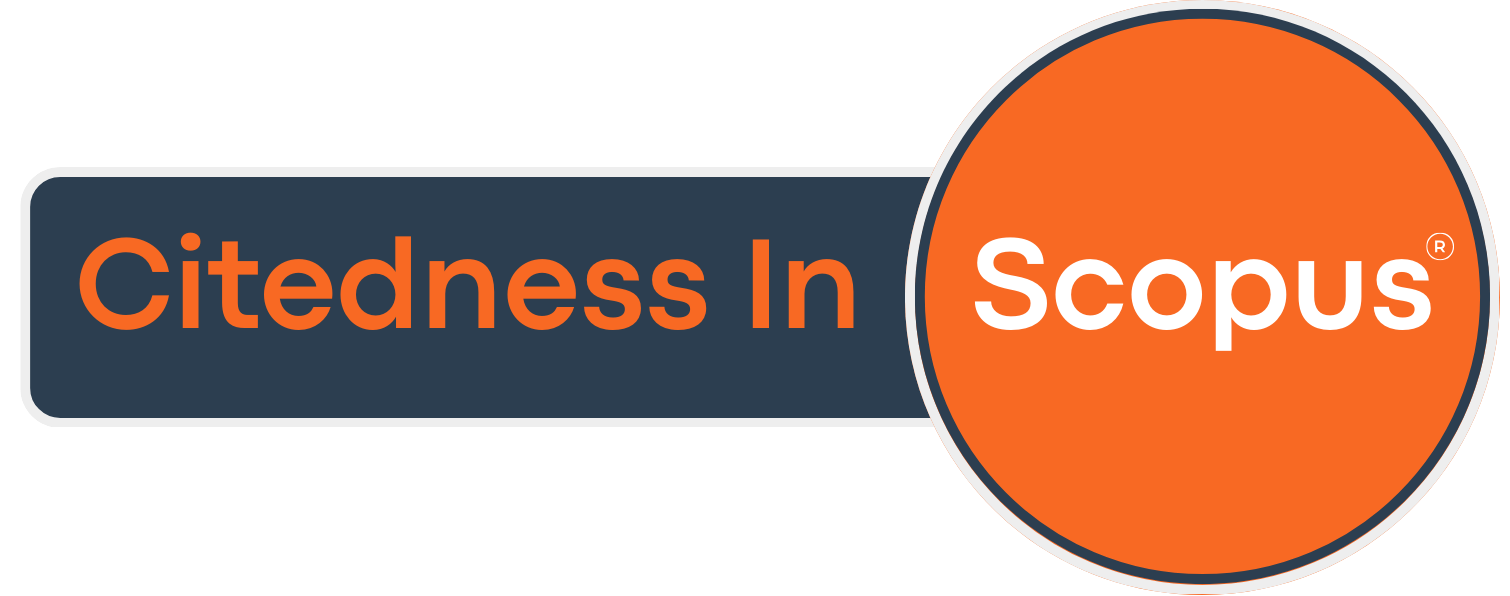MINI REVIEW ABOUT RISKS OF RADIATION IN MEDICINE
Downloads
Radiation is currently widely used and routinely applied in medicine. Diagnostic radiology, nuclear medicine, and radiation treatment have grown from their primitive beginnings 100 years ago to modern methods that are regarded as critical tools across all fields and specializations of medicine today. Ionizing radiation's inherent qualities give numerous benefits, but they can also be harmful. Its usage in medical practice requires an informed decision on the risk-benefit ratio. This choice requires knowledge of radiation in general as well as medical skill in specific. This review investigated the risks associated with radiation, their connection to medicine, and the advancements in diagnostic and therapeutic technologies. Radioactive substances and radiation are used in medicine, research, and diagnosis. The forms of radiation and their varied impacts on medicine, particularly in the treatment and diagnosis of disorders like cancer, were disclosed by our review's conclusions. It has been demonstrated that mistakes in radiation dosage can result in health issues, hence managing radiation must be done carefully both during research and in practice
Gupta, P. K., & Gupta, P. K. (2020). Radiation and Radioactive Materials. Problem Solving Questions in Toxicology: A Study Guide for the Board and other Examinations, 241-251.
Reed AB. The history of radiation use in medicine. J Vasc. Surg. 2011 Jan; 53(1 Suppl):3S-5S.
Norgard, J., & Best, G. L. (2017). The electromagnetic spectrum. In National Association of Broadcasters Engineering Handbook (pp. 3-10). Routledge.
Goodman PC. The new light: Discovery and introduction of the X-Ray. American Journal of Roentgenology. 1995; 165:1041-1045.
Feng, H., Yu, Z., & Chu, P. K. (2006). Ion implantation of organisms. Materials Science and Engineering: R: Reports, 54(3-4), 49-120.
Glasser O. Roentgen and the discovery of the Roentgen rays. American Journal of Roentgenology. 1995; 165:1033-1040.
Shahbazi-Gahrouei, D., Gholami, M., & Setayandeh, S. (2013). A review on natural background radiation. Advanced biomedical research, 2(1), 65.
Melott, A. L., & Thomas, B. C. (2011). Astrophysical ionizing radiation and Earth: a brief review and census of intermittent intense sources. Astrobiology, 11(4), 343-361.
Thorne, M. C. (2003). Background radiation: natural and man-made. Journal of Radiological Protection, 23(1), 29.
Numann, M. D., & Doege, M. D. (1991). Health Effects of Radon Exposure. Arch Intern Med, 151, 674-677.
Diffey, B. L. (2002). Sources and measurement of ultraviolet radiation. Methods, 28(1), 4-13.
Sharipova, G. I. (2022). Light and laser radiation in medicine. European journal of modern medicine and practice, 2(1), 36-41.
Fundarek, P. "A Review of Occupational Doses in Canada Over the Period Of 2008 to 2012, Reported Through the CNSC Annual Safety Performance Reports for Nuclear Substances and Prescribed Equipment." Occupational Radiation Protection: Enhancing the Protection of Workers—Gaps, Challenges and Developments. Proceedings of an International Conference. Supplementary Files: Book of contributed Papers. 2022.
Hricak H, Brenner DJ, Adelstein SJ, Frush DP, Hall EJ. Managing Radiation Use in Medical Imaging: A Multifaceted challenge. Radiology 2011 March; 258 (3):889-905.
Paolicchi F, Faggioni L, Bastiani L, Molinaro S, Puglioli m, Caramella D, Bartolozzi C. Optimizing the balance between radiation dose and image quality in paediatric head CT: findings before and after intensive radiologic staff training. American journal of Roentgenol 2014 Jun; 202(6): 1309.
Bosch de Basea Gomez, M., Thierry-Chef, I., Harbron, R., Hauptmann, M., Byrnes, G., Bernier, M. O., ... & Cardis, E. (2023). Risk of hematological malignancies from CT radiation exposure in children, adolescents and young adults. Nature Medicine, 29(12), 3111-3119.
Mettler FA Jr, Constine LS, Nosske D, Shore RE. Ninth Annual Warren K. Sinclair Keynote Address: effects of childhood radiation exposure: an issue from computed tomography scans to Fukushima. Health Phys. 2013;105(5):424-429. doi:10.1097/HP.0b013e31829c3548
Mohammed, K.J. and Hadi, M.M., 2022. Study the Influence of number of laser pulses on Optical Properties of CdS Thin Films Prepared by Laser Pulsed Deposition. African Journal of Advanced Pure and Applied Sciences (AJAPAS), pp.221-226.
Linet MS, Kazzi Z, Paulson JA; COUNCIL ON ENVIRONMENTAL HEALTH. Pediatric Considerations Before, During, and After Radiological or Nuclear Emergencies. Pediatrics. 2018;142(6):e20183001. doi:10.1542/peds.2018-3001
Hammer GP, Seidenbusch MC, Schneider K, et al. A cohort study of childhood cancer incidence after postnatal diagnostic X-ray exposure. Radiat Res. 2009;171(4):504-512. doi:10.1667/RR1575.1
Kutanzi KR, Lumen A, Koturbash I, Miousse IR. Pediatric Exposures to Ionizing Radiation: Carcinogenic Considerations. Int J Environ Res Public Health. 2016;13(11):1057. Published 2016 Oct 28. doi:10.3390/ijerph13111057
Angel E, Wellnitz CV, Goodsitt MM. Radiation dose to the foetus for pregnant patients undergoing multi-detector CT imaging: Monte-Carlo simulations estimating foetal dose for a range of gestational age and patient size. Radiology 2008; 249: 220-227.
Michalet M, Dejean C, Schick U, Durdux C, Fourquet A, Kirova Y. Radiotherapy and pregnancy. Cancer Radiother. 2022;26(1-2):417-423. doi: 10.1016/j.canrad.2021.09.001
Blommaert J, De Saint-Hubert M, Depuydt T, et al. Challenges and opportunities for proton therapy during pregnancy. Acta Obstet Gynecol Scand. 2024;103(4):767-774. doi:10.1111/aogs.14645
Lowe SA. Diagnostic radiography in pregnancy: risks and reality. Aust N Z J Obstet Gynaecol. 2004;44(3):191-196. doi:10.1111/j.1479-828X.2004. 00212.x
Gomes M, Matias A, Macedo F. Risks to the fetus from diagnostic imaging during pregnancy: review and proposal of a clinical protocol. Pediatr Radiol. 2015;45(13):1916-1929. doi:10.1007/s00247-015-3403-z
Wang, W. H., Sung, C. Y., Wang, S. C., & Shao, Y. H. J. (2023). Risks of leukemia, intracranial tumours and lymphomas in childhood and early adulthood after pediatric radiation exposure from computed tomography. CMAJ, 195(16), E575-E583.
MacNevin, W., Chua, M., Kraus, M. S., & Keefe, D. T. (2024). Radiation exposure associated with computed tomography for pediatric urolithiasis evaluation: A scoping review of the literature. Journal of Pediatric Urology.
Andrade ME, Borras C, Kkoury HJ, Dias SK. Organ doses and risks of computed tomographic examinations. J. Radiol. Prot. 2012 Sept.; 32 (3): 251- 60.
Brenner DJ, Elliston CD, Hall EJ, Berden WE. Estimated risks of radiation induced foetal cancer from paediatric CT. American journal of Roentgenology 2001; 176: 289-296.
Chen, Z., Pawar, K., Ekanayake, M., Pain, C., Zhong, S., & Egan, G. F. (2023). Deep learning for image enhancement and correction in magnetic resonance imaging—state-of-the-art and challenges. Journal of Digital Imaging, 36(1), 204-230.
Mainprize, J. G., Yaffe, M. J., Chawla, T., & Glanc, P. (2023). Effects of ionizing radiation exposure during pregnancy. Abdominal Radiology, 48(5), 1564-1578.
Fogtman, A., Baatout, S., Baselet, B., Berger, T., Hellweg, C. E., Jiggens, P., ... & Durante, M. (2023). Towards sustainable human space exploration—priorities for radiation research to quantify and mitigate radiation risks. npj Microgravity, 9(1), 8.
Dorr W. Radiation effect in normal tissue. Principles of damage and protection. Nuklir Medizin. 2010; 49 (Suppl 1): S53-8.
Gray JE, Archer BR, Butler PF. Reference values for diagnostic radiology: application and impact. Radiology 2005; 235: 354-358.
McCollough C, Branham T, Herlihy V. Diagnostic reference levels from ACR CT Accreditation Program. J Am. Coll. Radiol. 2011; 8: 745-803.
Wesenberg RL and Amundson GM. Fluroscopy in children: Low exposure technology. Radiology 1984 Oct; 153(1):243-247.
Milder, C. M., Borrego, D., Preston, D. L., Villoing, D., Kwon, T. E., Miller, D. L., ... & Kitahara, C. M. (2024). Occupational radiation dose trends in US radiologic technologists assisting with fluoroscopically-guided interventional procedures, 1980-2020. Journal of Vascular and Interventional Radiology.
Canet M, Harbron R, Thierry-Chef I, Cardis E. Cancer Effects of Low to Moderate Doses of Ionizing Radiation in Young People with Cancer-Predisposing Conditions: A Systematic Review. Cancer Epidemiol Biomarkers Prev. 2022;31(10):1871-1889. doi: 10.1158/1055-9965.EPI-22-0393
Liu J, Bi K, Yang R, Li H, Nikitaki Z, Chang L. Role of DNA damage and repair in radiation cancer therapy: a current update and a look to the future. Int J Radiat Biol. 2020;96(11):1329-1338. doi:10.1080/09553002.2020.1807641
Martin OA, Yin X, Forrester HB, Sprung CN, Martin RF. Potential strategies to ameliorate risk of radiotherapy-induced second malignant neoplasms. Semin Cancer Biol. 2016;37-38:65-76. doi: 10.1016/j.semcancer.2015.12.003
Kim BM, Hong Y, Lee S, et al. Therapeutic Implications for Overcoming Radiation Resistance in Cancer Therapy. Int J Mol Sci. 2015;16(11):26880-26913. Published 2015 Nov 10. doi:10.3390/ijms161125991
Baskar R, Yap SP, Chua KL, Itahana K. The diverse and complex roles of radiation on cancer treatment: therapeutic target and genome maintenance. Am J Cancer Res. 2012;2(4):372-382.
Canet M, Harbron R, Thierry-Chef I, Cardis E. Cancer Effects of Low to Moderate Doses of Ionizing Radiation in Young People with Cancer-Predisposing Conditions: A Systematic Review. Cancer Epidemiol Biomarkers Prev. 2022;31(10):1871-1889. doi: 10.1158/1055-9965.EPI-22-0393
da Cruz AD, de Melo e Silva D, da Silva CC, et al. Microsatellite mutations in the offspring of irradiated parents 19 years after the Cesium-137 accident. Mutat Res. 2008;652(2):175-179. doi: 10.1016/j.mrgentox.2008.02.002
Sankaranarayanan K, Chakraborty R. Ionizing radiation and genetic risks. XIII. Summary and synthesis of papers VI to XII and estimates of genetic risks in the year 2000. Mutat Res. 2000;453(2):183-197. doi:10.1016/s0027-5107(00)00106-8
Sankaranarayanan K, Nikjoo H. Ionising radiation and genetic risks. XVI. A genome-based framework for risk estimation in the light of recent advances in genome research. Int J Radiat Biol. 2011;87(2):161-178. doi:10.3109/09553002.2010.518214
Sankaranarayanan K, Chakraborty R. Impact of cancer predisposition and radiosensitivity on the population risk of radiation-induced cancers. Radiat Res. 2001;156(5 Pt 2):648-656. doi:10.1667/0033-7587(2001)156[0648: iocpar]2.0.co;2
Copyright (c) 2023 Fatema Sattar, Ali Razzaq Amer, Jabbar, Zahraa Ayed Raziq, Shahad yousif Mahdi

This work is licensed under a Creative Commons Attribution 4.0 International License.



















